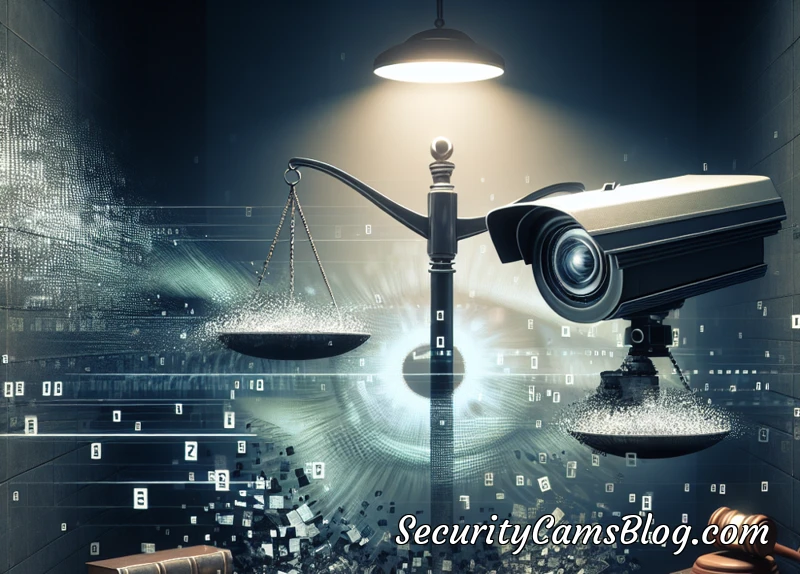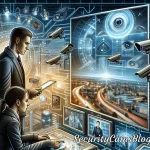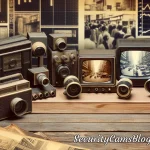Introduction
In today’s world, surveillance has become a common practice. With the advancement of technology, it has become easier to monitor and record individuals without their knowledge. Covert video surveillance is one such method where video recording is done secretly. But, the legality of covert video surveillance is a complex issue, and it varies from place to place.
The Legality of Covert Video Surveillance
The legality of covert video surveillance is determined by the laws of the land. In the United States, for instance, the use of covert video surveillance is governed by federal and state laws. While some states allow the use of covert video surveillance in certain situations, others prohibit it entirely.
Federal Laws
At the federal level, the use of covert video surveillance is regulated by various laws. The Electronic Communications Privacy Act (ECPA) is one such law that prohibits the interception of wire, oral, or electronic communications. However, the ECPA contains an exception for video surveillance, which allows the use of covert video surveillance in certain situations.
State Laws
At the state level, the laws regarding covert video surveillance vary widely. Some states, such as California, have strict laws that prohibit the use of covert video surveillance in most situations. Other states, such as Texas, allow the use of covert video surveillance in certain situations, such as in the workplace or in public places.
When is Covert Video Surveillance Legal?
The legality of covert video surveillance depends on several factors, including the location of the surveillance, the purpose of the surveillance, and the knowledge and consent of the individuals being surveilled.
Location of the Surveillance
The location of the surveillance is an essential factor in determining its legality. Covert video surveillance in private places, such as homes or hotel rooms, is generally considered illegal without the consent of the individuals being surveilled. On the other hand, covert video surveillance in public places, such as streets or parks, is usually considered legal.
Purpose of the Surveillance
The purpose of the surveillance is another crucial factor in determining its legality. Covert video surveillance for the purpose of monitoring criminal activity is generally considered legal. However, covert video surveillance for the purpose of invading someone’s privacy is illegal.
Knowledge and Consent of the Individuals Being Surveilled
The knowledge and consent of the individuals being surveilled are also essential factors in determining the legality of covert video surveillance. Covert video surveillance without the knowledge or consent of the individuals being surveilled is generally considered illegal. However, there are exceptions to this rule, such as in cases of suspected criminal activity or when the surveillance is conducted in a public place.
Exceptions to the Rule

There are several exceptions to the general rule that covert video surveillance is illegal without the knowledge or consent of the individuals being surveilled. These exceptions include:
Suspected Criminal Activity
Covert video surveillance is generally considered legal in cases of suspected criminal activity. Law enforcement agencies often use covert video surveillance as part of their investigations. However, such surveillance must be conducted in accordance with the laws and regulations governing criminal investigations.
Public Places
Covert video surveillance in public places is usually considered legal. This is because individuals in public places have a reduced expectation of privacy. However, the surveillance must not be used for invasive or prurient purposes.
Employers
Employers are allowed to use covert video surveillance in the workplace in certain situations. For instance, employers may use covert video surveillance to monitor employee conduct or to ensure the safety and security of their property. However, employers must inform their employees of the surveillance and obtain their consent if the surveillance is to be conducted in areas where employees have a reasonable expectation of privacy, such as restrooms or locker rooms.
Consequences of Illegal Covert Video Surveillance
The consequences of illegal covert video surveillance can be severe. Individuals who have been subjected to illegal surveillance may be entitled to damages, including compensation for emotional distress and loss of privacy. In addition, those who conduct illegal surveillance may face criminal charges and penalties, including fines and imprisonment.
Conclusion
Covert video surveillance is a complex issue, and its legality varies from place to place. While covert video surveillance is legal in some situations, such as in cases of suspected criminal activity or in public places, it is generally considered illegal without the knowledge or consent of the individuals being surveilled. Those who conduct illegal surveillance may face severe consequences, including damages, criminal charges, and penalties. Therefore, it is essential to understand the laws and regulations governing covert video surveillance in your jurisdiction before engaging in any such activities.







